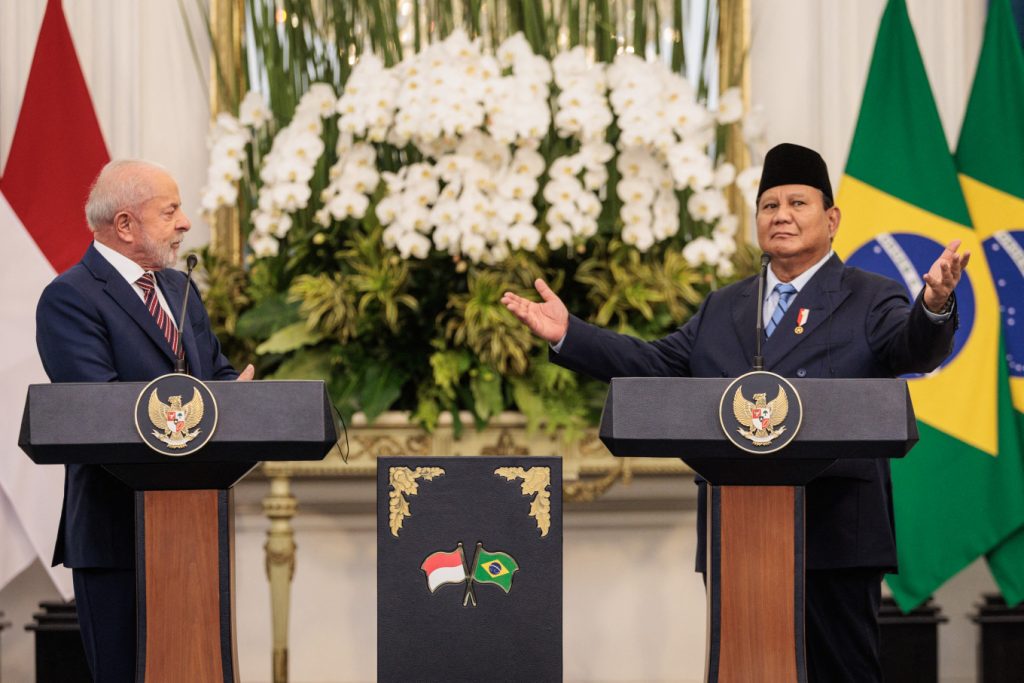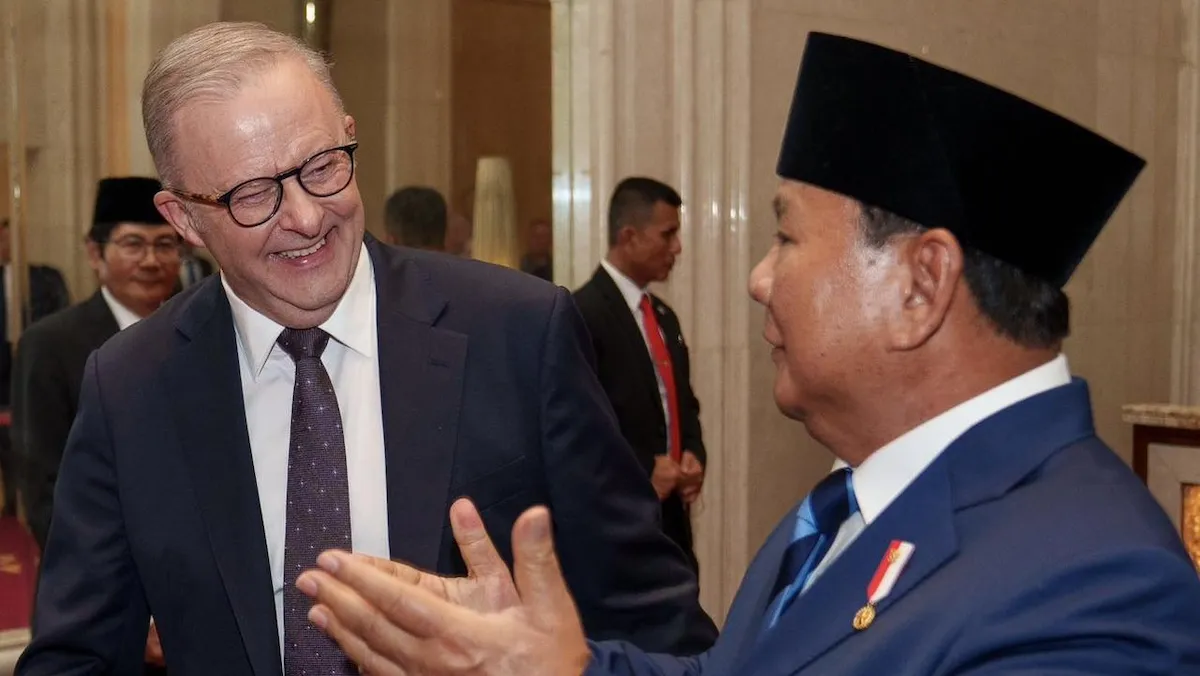Skepticism toward state paternalism, visible in online critiques of the free nutritious meal program rollout and in discussions about Prabowo’s ASEAN diplomacy, reflects a generation less easily swayed by spectacle.

When my nine-year-old heard President Prabowo Subianto’s announcement, she asked, “Are there even Portuguese teachers?”
It was an innocent question, but one that cuts through the President’s latest policy spectacle over the stated introduction of Portuguese into the national curriculum during Brazilian President Luiz Inácio Lula da Silva’s recent visit to Jakarta.
The announcement came on the heels of Timor-Leste’s long-awaited admission to Association of Southeast Asian Nations (ASEAN), as its 11th member. This move closed a half-century loop that began with Indonesia’s 1975 invasion, a 24-year occupation, and independence in 2002. Portuguese is an official language in the country.
Its symbolism may have been coincidental, though it could appear deliberate, a gesture of reconciliation dressed as diplomacy, and an act of cultural projection layered over a region in transition.
Prabowo’s Portuguese language plan still seems to reveal less about linguistic curiosity, than about the symbolic language that his presidency speaks. Like the free nutritious meal (MBG) program that has defined his first year, it hints at a politics of language, a carefully scripted blend of paternal command and populist theater that shapes both his domestic and foreign agendas.
Prabowo’s approach, at home and abroad, appears to operate on dual frequencies. The Portuguese initiative may signal a Global South and reconciliation positioning, aligning Indonesia with Brazil and the Lusophone (Portuguese-speaking) world. Yet, the move also projects control and hierarchy.
It is a gesture of magnanimity from a leader still wrestling with the shadows of his past military venture in East Timor, where his name remains tied to well-documented controversies.
The suggestion by the chair of the House of Representatives Commission X, that covers education, to pilot the language program in East Nusa Tenggara that borders Timor-Leste, could reflect both diplomacy and atonement.
However, would Indonesia be willing to employ Timor-Leste teachers, a nation it once occupied?
As with many of Prabowo’s initiatives, the performative risks overshadowing the practical.
In East Nusa Tenggara, many areas already struggle with limited resources, such rapid capacity building could deepen inequalities and
divert much-needed funds from science, technology, engineering, mathematics and literacy programs. Indeed, my daughter’s question echoes broader skepticism. Indonesia’s education system already juggles Bahasa Indonesian, English and regional languages amid chronic teacher shortages and infrastructure gaps.
Critics highlight the impracticality: why prioritize a language spoken by fewer than 300 million globally, when Mandarin or Korean offer more
tangible advantages. To add Portuguese may appear more theatrical than strategic.
The Brazilian dimension adds its own flourish. Indonesia’s accession to BRICS under President Prabowo’s watch indicates a desire to balance United States-China rivalry while deepening South-South solidarity. Lula, an evangelist for Lusophone connectivity, praised the language move as a bridge between continents.
Even a recent editorial in The Jakarta Post is enthusiastic to this proposition, suggesting that geopolitics, cultural exchange, and perhaps, economic relations could benefit both countries.
For ASEAN partners, meanwhile, the symbolism of the Portuguese initiative will be measured not by linguistic reach but by Indonesia’s capacity to lead meaningfully. Timor-Leste’s admission tests ASEAN’s ability to integrate its poorest member.
If Indonesia can translate its cultural overture into genuine cooperation, educational exchanges, local development and shared governance capacity, it could mark a new chapter of regional leadership. But absent that follow-through, it risks becoming another performative piece in a presidency increasingly defined by symbolic politics.
If Portuguese is the language of diplomacy, the MBG program is the language of command. Rolled out with much fanfare early this year, the program promises to deliver daily meals to 83 million people and reduce child stunting to 14 percent by 2029. Officials boast of 1.4 billion meals served by late October, but a series of food poisoning incidents that have affected more than 11,000 children exposed weaknesses in the program’s hygiene, procurement and oversight.
The government’s defensive response, attributing cases to “unfamiliarity” with nutrition, betrays a deeper flaw, of a top-down ethos that prizes obedience over listening. Prabowo’s presidential style, steeped in the command culture of the barracks, may resonate with older voters who equate order with stability. Yet for younger Indonesians, whose formative experiences have been shaped by precarity, digital exposure and global discourse, it revives a tension between governance as performance and democracy as participation.
That tension matters. Millennials and Gen Zers make up over half the electorate, and have grown up navigating unstable work, rising living costs and declining institutional trust. For them, the promise of strong leadership rings hollow unless matched by transparency and accountability. Their skepticism toward state paternalism, visible in online critiques of the MBG program rollout and in discussions about Prabowo’s ASEAN diplomacy, reflects a generation less easily swayed by spectacle.
The program has a deeper conundrum. The word gratis, attached to the MBG (makan bergizi gratis) program, offers a telling case. Borrowed from Dutch colonial vocabulary, gratis was absorbed into Bahasa Indonesian to mean free of charge. Yet when deployed by the state, it takes on a paradoxical meaning, a projection of generosity funded entirely by public money, at hundreds of trillion rupiahs each year.
Prabowo’s appropriation of the term reinforces the paternal image of a leader providing for his people, even as the program itself is anything but free in fiscal terms. The semantics of gratis thus become part of his political language, transforming social policy into a personalized act of
benevolence.
One year in, a pattern is emerging. Prabowo’s politics of language, diplomatic or domestic, speaks fluently in symbolism but hesitantly in substance. He could still change that. Reconciliation with Timor-Leste, reform of the MBG program, and genuine youth engagement would lend meaning to his rhetoric of unity and prosperity.
This time around, with Indonesia’s foreign and domestic policies unfold unevenly, Prabowo must heed voices like my child’s, simple questions
demanding substantive answers. If he wants his presidency to speak progress, he must replace diplomatic theater and domestic monologues with genuine multidimensional engagements.
Otherwise, his politics of language may only articulate divides, regional and national, rather than bridge them.
Adi Abidin is a public policy specialist at Kiroyan Partners and a research fellow at Populi Center. The views expressed are personal.
Source: The Jakarta Post, November 11, 2025.
Download the clipping here.



